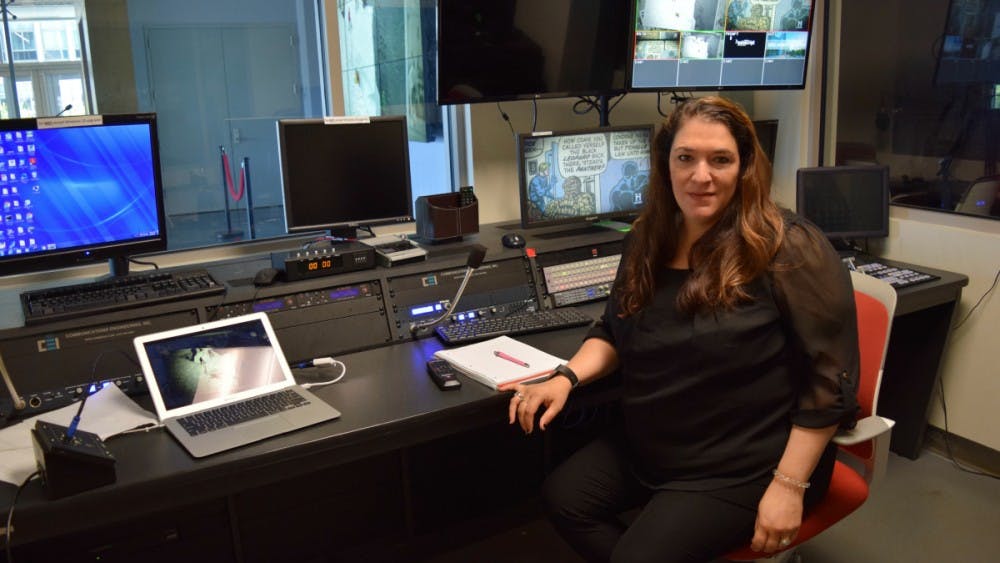The School of Communication professor who is appealing her tenure denial will not return for the fall semester.
Carolyn Brown, a former assistant professor in SOC, will be a senior lecturer at the Mayborn School of Journalism at the University of North Texas come this fall.
Brown claimed she was unfairly denied tenure in March and appealed the provost's decision in June, stating that Provost Scott Bass incorrectly weighed her teaching evaluations in making his decision and was punishing her for her activism on race and gender issues. Brown is a filmmaker who has primarily focused on Latino immigrant communities and their representation in the media.
Brown said her resignation went into effect August 1. She is unsure of whether or not she will return to AU if her appeal is approved.
“I got another job offer right after I was denied tenure and I felt like I needed to take it,” Brown told The Eagle in a phone interview. “If my tenure decision is overturned, I will then consider my options.”
Brown's former students described mixed experiences with her teaching. Ellie Klausmeyer, a 2017 graduate, does not feel Brown should be a tenured faculty member at AU.
Klausmeyer took Brown’s Backpack Journalism class in the spring 2017 semester and said she stopped showing up to class the last few weeks of the term because she felt Brown acted unprofessionally.
“She had made me feel so uncomfortable in the class, that I just decided to drop it and not go back to it,” Klausmeyer said.
Klausmeyer said Brown was not qualified for her position as a professor, arguing that her lack of professionalism in the classroom made her unfit to teach.
“I don’t think she knows how to teach,” Klausmeyer said. “For example, she would have to ask students how to properly use Adobe Premiere, the program we would use in class.”
In a June Eagle article, other students did not express negative opinions of Brown’s teaching. Sarah Parnass took Broadcast Journalism II with Brown in the fall of 2011 and graduated from SOC in 2012. She thought Brown’s teaching methods prepared her for working in a real newsroom.
“I found Professor Brown to be tough. She demanded a lot and expected a lot,” Parnass said. “I do think that she prepared me to work in a tough environment with strict news standards and a very fast turn around.”
Faculty members do not believe her denial was made on a fair basis. Professors from the College of Arts and Sciences, School of International Service and School of Communication coauthored a letter to University President Sylvia Burwell expressing their opposition to her denial on July 14.
In their memo, they cited Brown’s scholarship and service to the University as justification for her to earn tenure. They also mention the potential “limitations” of using student evaluations as the basis of denial, which Brown took issue with in her appeal.
“It also seems as if the place of student evaluations in determining a tenure-track professor’s promotion are highly arbitrary: sometimes they matter and sometimes they do not,” the faculty said in the letter.
The faculty also argue that Brown’s case “illustrates that AU is not living up to its supposed commitment to diversity, inclusion and social justice.” They wrote that they are “deeply ashamed” to be at an institution that “fails to actively support the work and careers of women and faculty of color.”
“Her tenure denial comes at the moment when student protests have forced AU to reshape its hiring practices and curriculum,” the faculty wrote, adding that the University has been “unable” to find a tenured Latinx scholar to create and run an interdisciplinary Latinx Studies program at AU.
Brown said the Committee on Faculty Grievances will review her appeal in the fall. Brown has not yet made a decision as to whether she would want to return to AU if the committee and President Burwell rule in her favor.
“I will cross that bridge when I get there,” Brown said.




